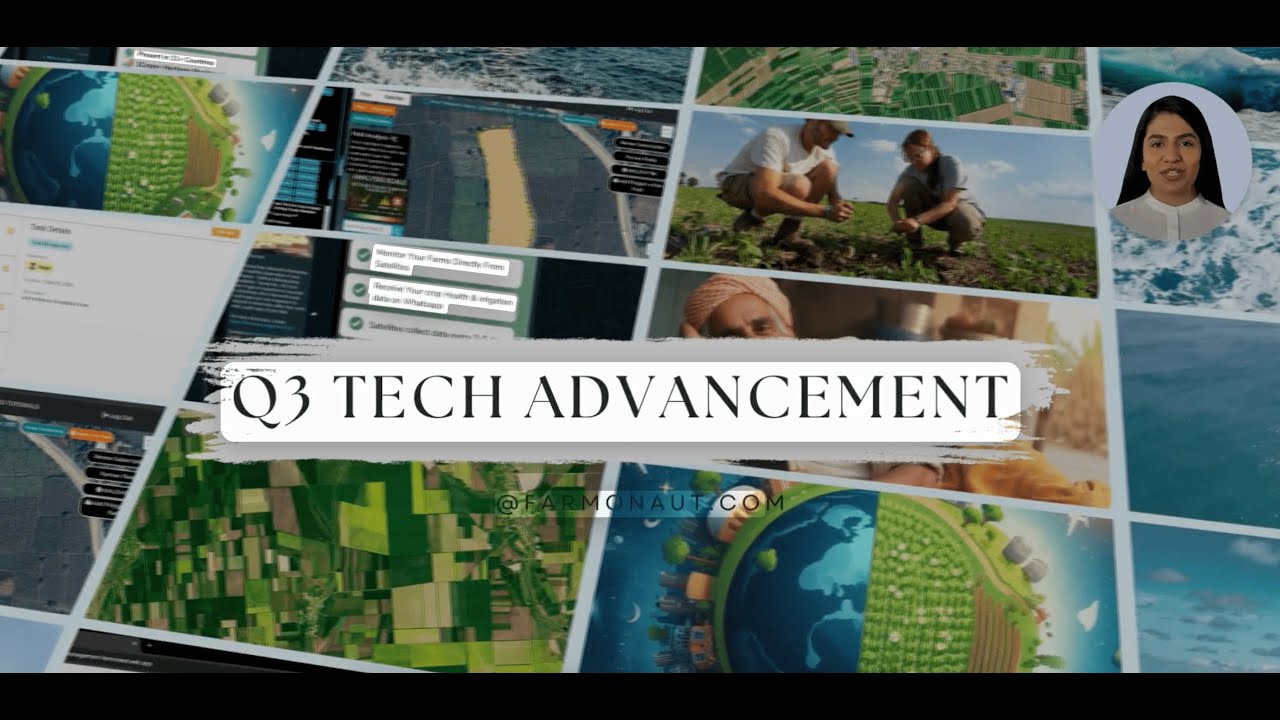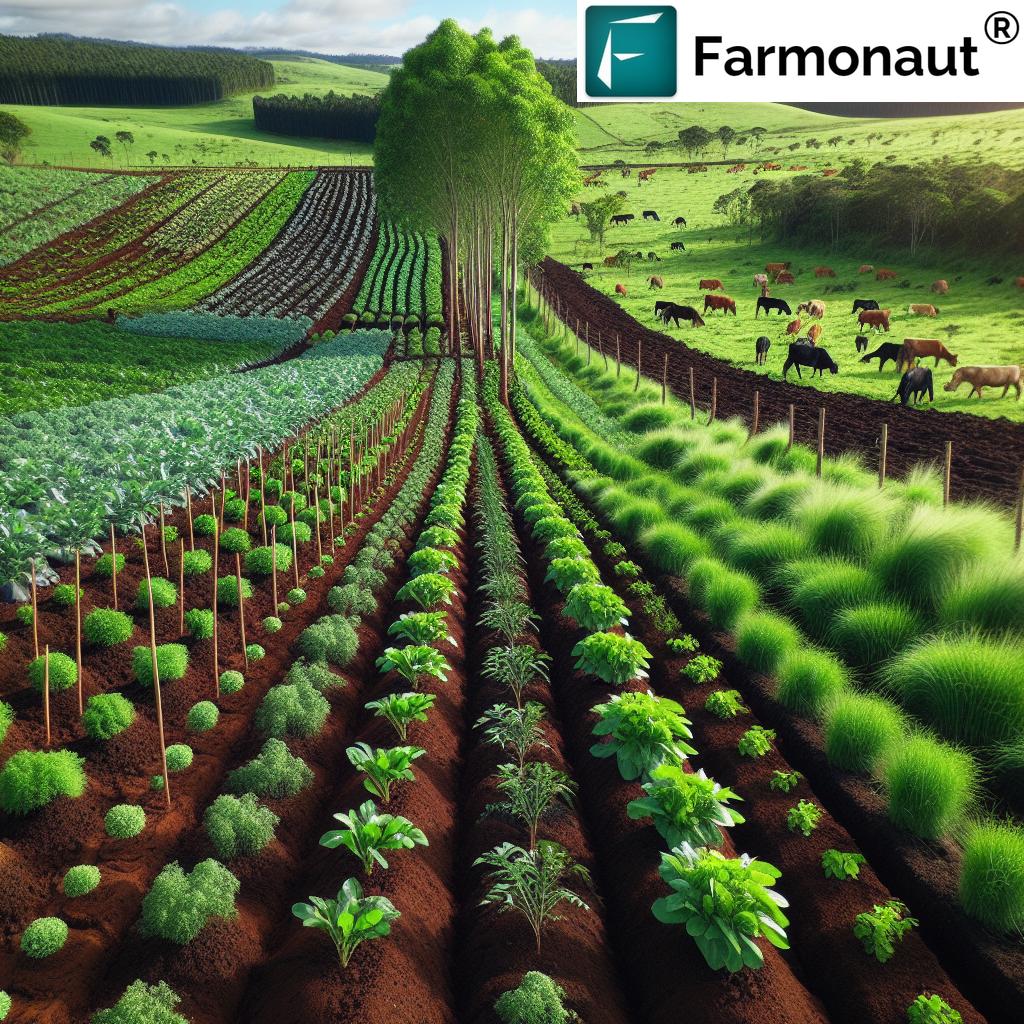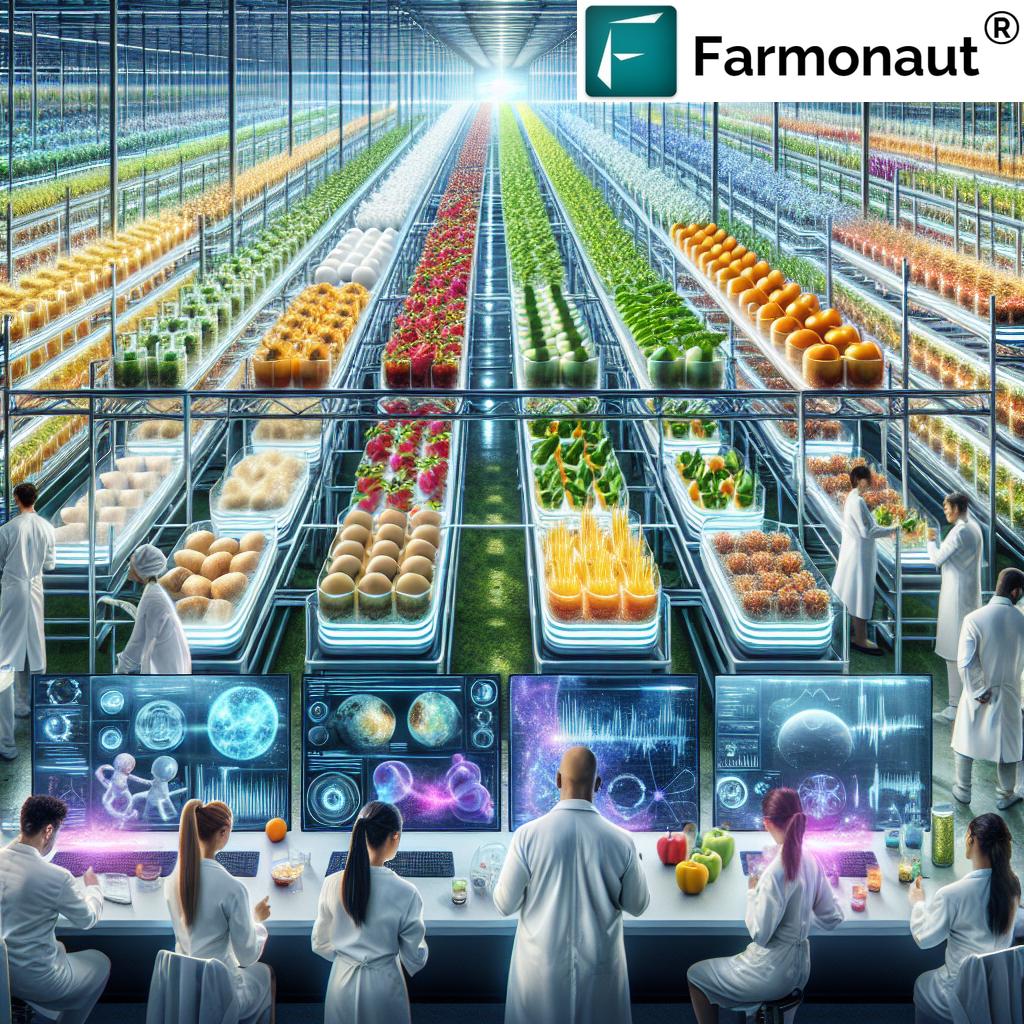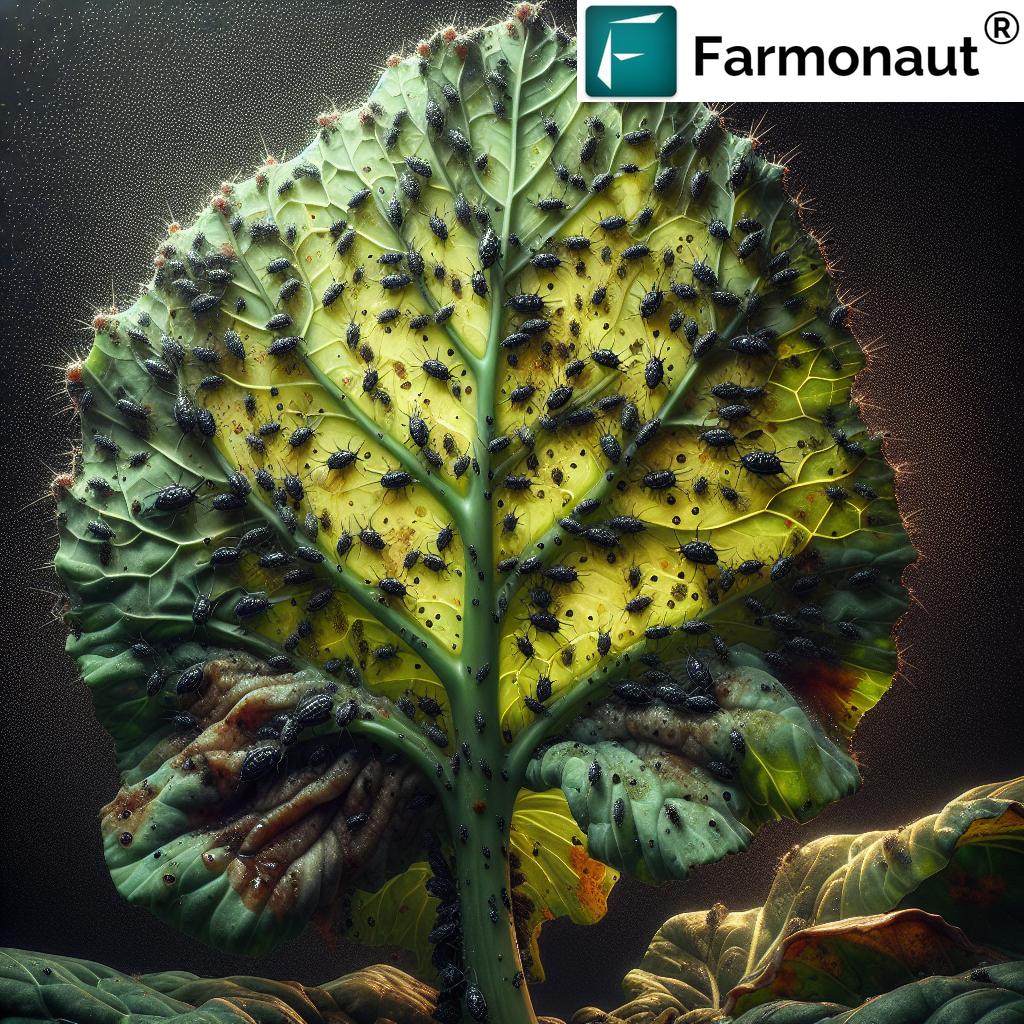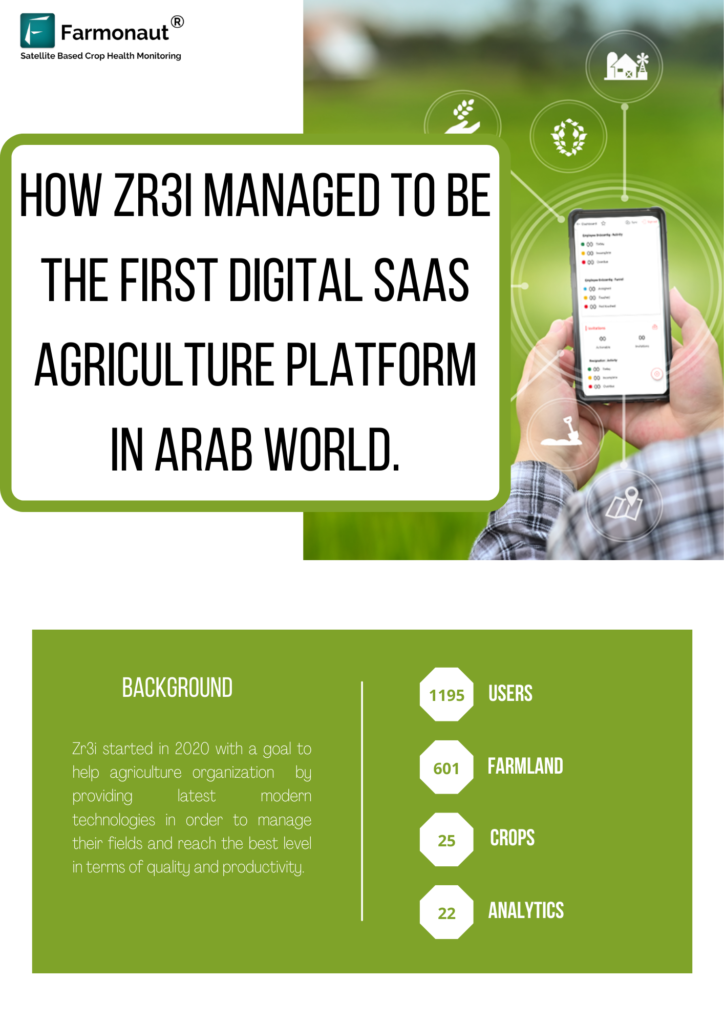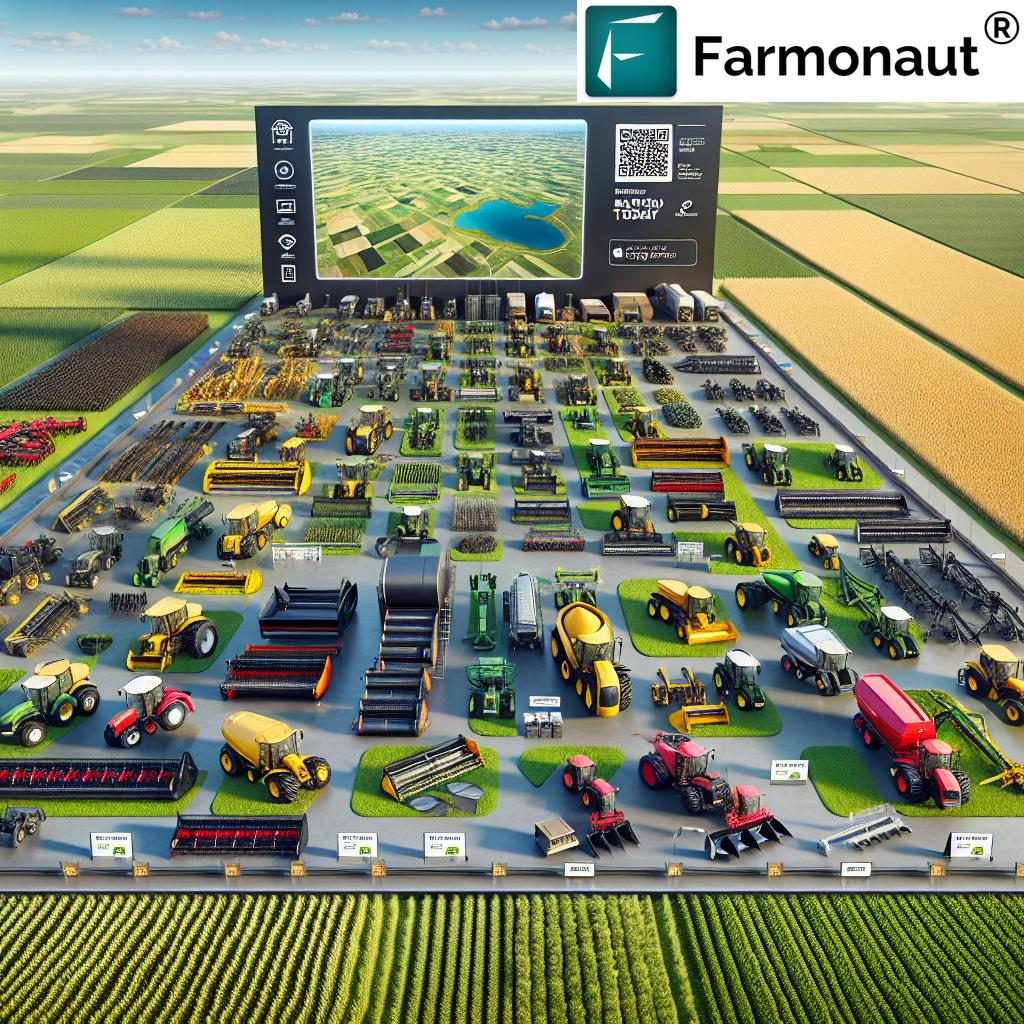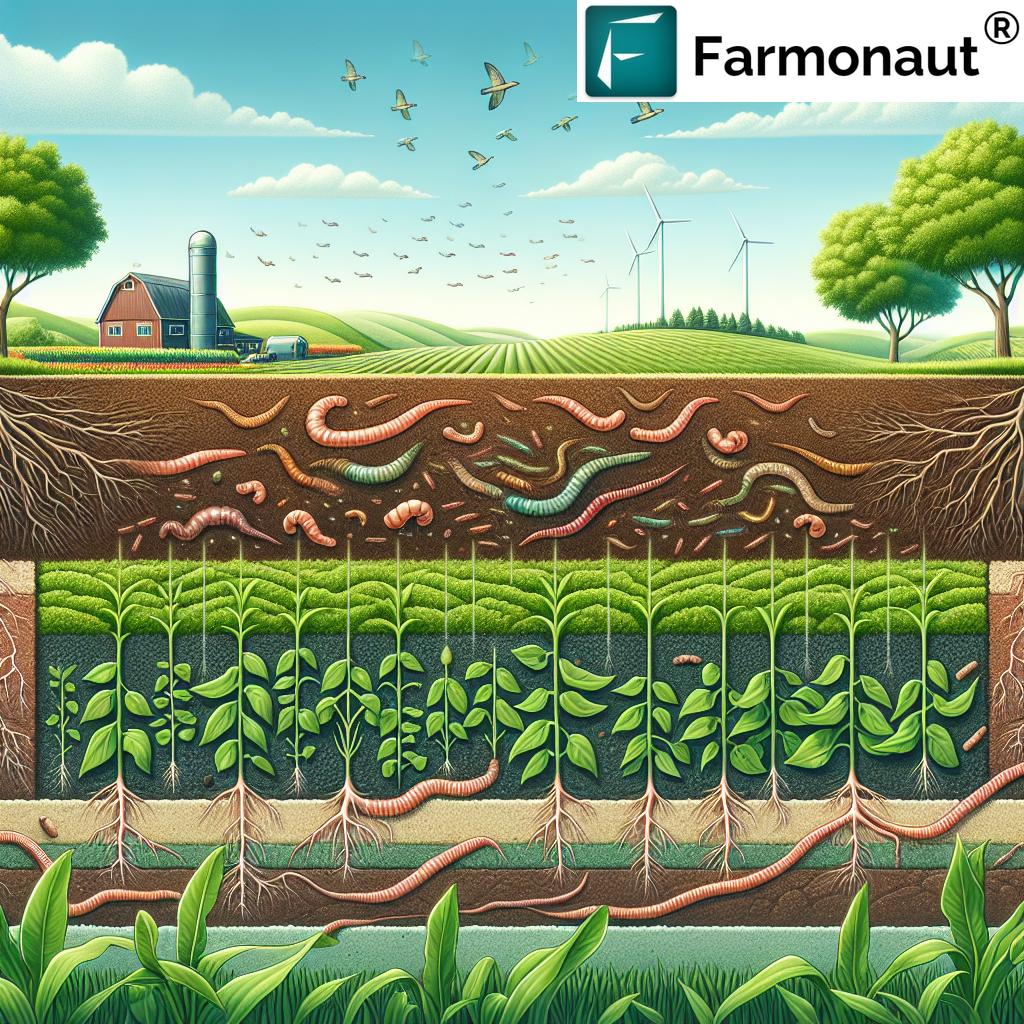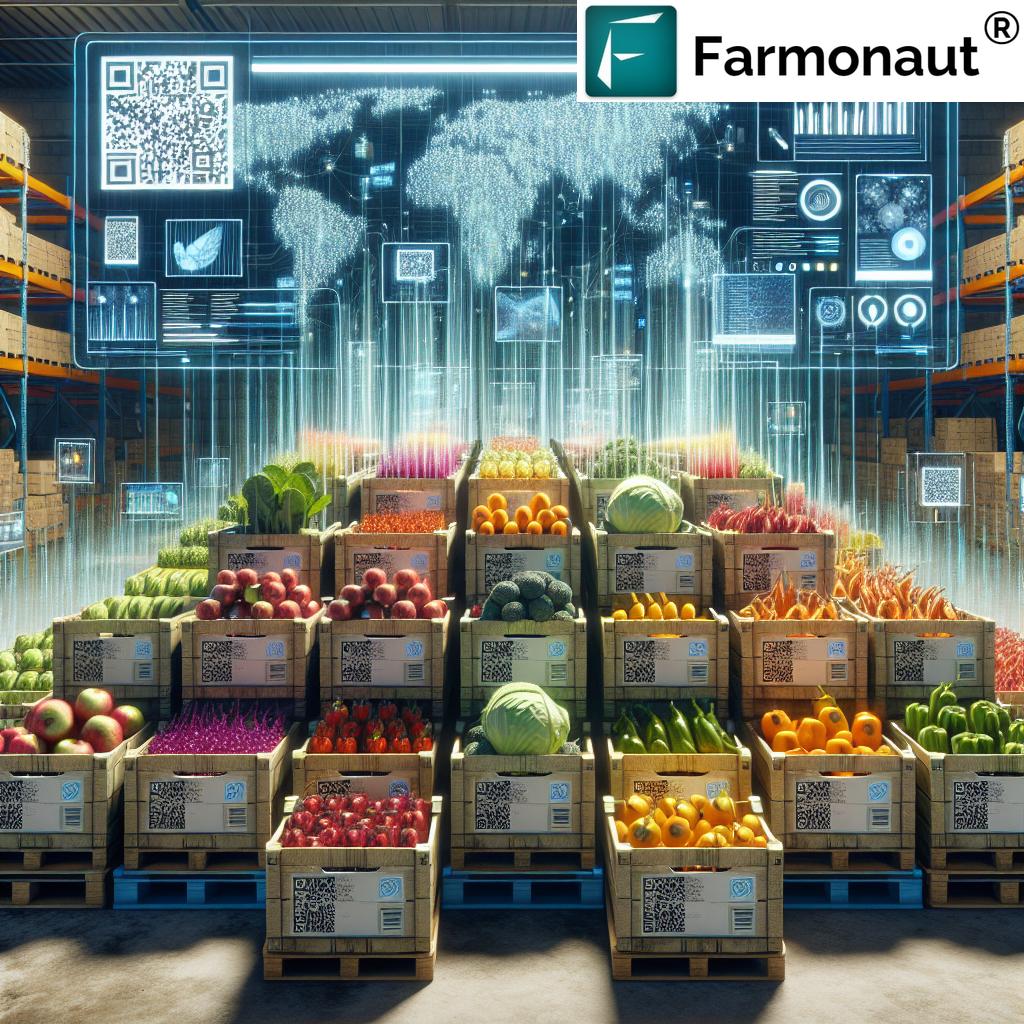Revolutionizing Agriculture: How Gene Editing and Digital Technologies Are Shaping Climate-Resilient Crop Production
“Gene editing techniques have the potential to increase crop yields by up to 25% in climate-stressed environments.”
In the face of global climate change and increasing food security challenges, the agricultural sector is undergoing a revolutionary transformation. At the forefront of this change are gene editing technologies and digital innovations that are reshaping how we approach crop production and farm management. As pioneers in agricultural technology, we at Farmonaut are excited to explore the cutting-edge developments that are making agriculture more resilient, productive, and sustainable.
The Rise of Gene Editing in Agriculture
Gene editing in agriculture has emerged as a powerful tool in developing climate-resilient crops and enhancing food security. This groundbreaking technology allows scientists to make precise changes to plant DNA, resulting in crops with improved traits such as drought tolerance, disease resistance, and enhanced nutritional content.
- CRISPR-Cas9: The most widely used gene editing tool
- Targeted modifications for specific crop improvements
- Faster and more precise than traditional breeding methods
The potential of gene editing to address global agricultural challenges is immense. By creating crops that can thrive in challenging environments, we can ensure a more stable food supply in the face of climate change.
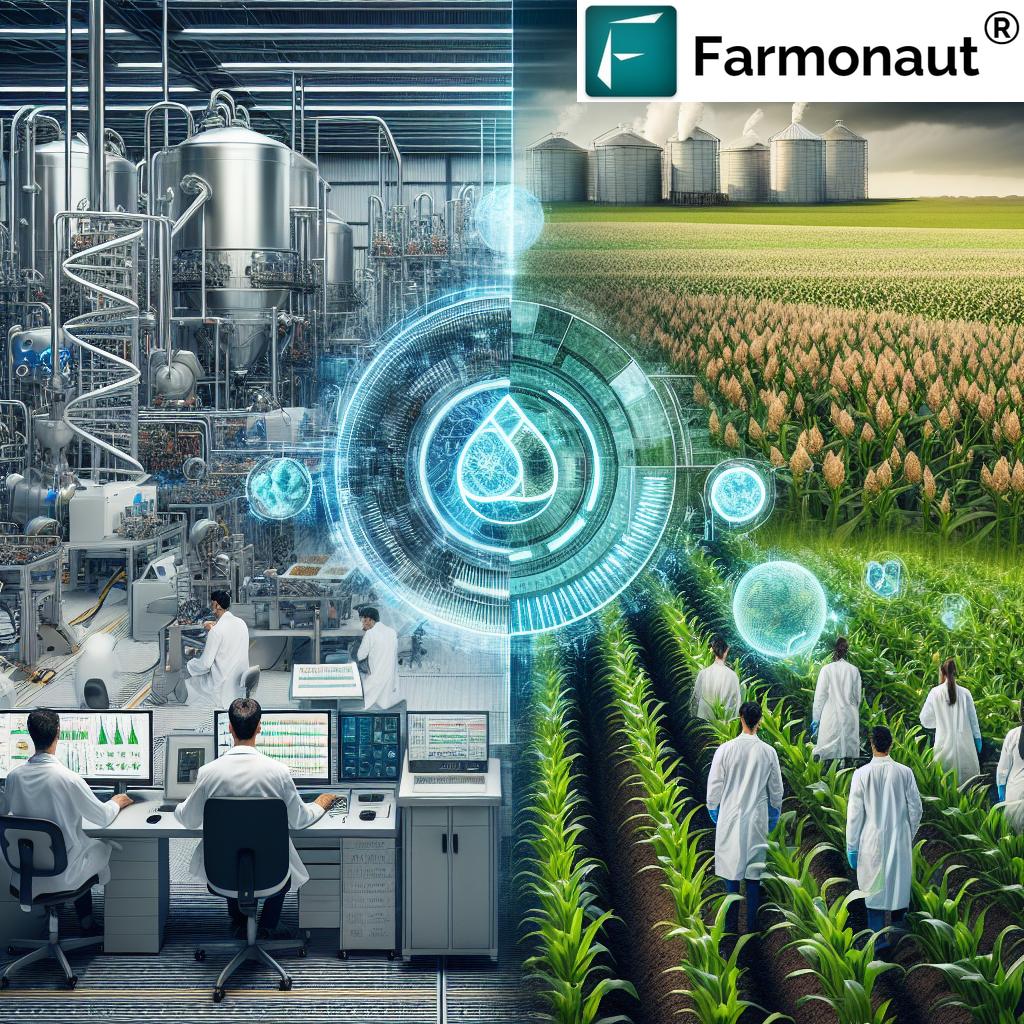
Climate-Resilient Crops: A New Era in Agriculture
The development of climate-resilient crops is crucial for maintaining and increasing global food production. Gene editing technologies are enabling scientists to create plant varieties that can withstand extreme weather conditions, pests, and diseases.
- Drought-tolerant maize
- Salt-resistant rice
- Heat-tolerant wheat
These advancements are not just theoretical; they’re already making a difference in fields around the world. Farmers are reporting increased yields and reduced crop losses, even in challenging environmental conditions.
The Role of Digital Technologies in Modern Agriculture
While gene editing is revolutionizing crop development, digital technologies are transforming farm management practices. Precision agriculture technologies, powered by satellite imagery, AI, and IoT devices, are providing farmers with unprecedented insights into their fields.
At Farmonaut, we’re proud to be at the forefront of this digital revolution. Our satellite-based farm management solutions offer real-time crop health monitoring, AI-driven advisory systems, and resource management tools. To experience these innovative solutions firsthand, visit our web app or download our mobile apps:
Integrating Gene Editing and Digital Technologies
The true power of agricultural innovation lies in the integration of gene editing and digital technologies. This synergy is creating a new paradigm in farming, where genetically optimized crops are managed with precision and data-driven insights.
- Tailored crop varieties for specific regions
- Optimized resource allocation based on real-time data
- Predictive models for crop performance and yield
“Precision agriculture technologies can reduce water usage in farming by up to 30% while maintaining or improving crop productivity.”
The Impact on Global Food Security
The combination of gene editing for food security and advanced digital farming tools is addressing some of the most pressing challenges in global agriculture. By increasing crop yields, reducing resource waste, and enhancing resilience to climate change, these technologies are playing a crucial role in feeding a growing world population.
Sustainable Food Production: A Key Priority
As we push the boundaries of agricultural productivity, sustainability remains a top priority. Gene editing and digital technologies are enabling more sustainable farming practices by:
- Reducing the need for pesticides and herbicides
- Improving water use efficiency
- Minimizing soil degradation
- Lowering greenhouse gas emissions from agriculture
At Farmonaut, we’re committed to promoting sustainable agriculture. Our platform offers tools for carbon footprint tracking and resource optimization, helping farmers make environmentally conscious decisions. Explore our solutions on our web app or through our API:
Farmonaut API
API Developer Docs
Overcoming Challenges and Controversies
While the potential benefits of gene editing and digital technologies in agriculture are immense, it’s important to address the challenges and controversies surrounding these innovations:
- Regulatory hurdles for gene-edited crops
- Public perception and acceptance of GMOs
- Data privacy concerns in digital farming
- Equitable access to new technologies
Addressing these issues requires collaboration between scientists, policymakers, farmers, and the public to ensure that agricultural innovations are implemented responsibly and ethically.

The Future of Farming: A Data-Driven, Genetically Optimized Landscape
As we look to the future, the integration of gene editing and digital technologies promises to create a more resilient, productive, and sustainable agricultural sector. Some exciting developments on the horizon include:
- Crops designed to capture more carbon from the atmosphere
- AI-powered farming robots for precision planting and harvesting
- Blockchain-based supply chain solutions for improved traceability
- Personalized nutrition through custom-designed crops
Empowering Farmers with Knowledge and Tools
For these technological advancements to have maximum impact, it’s crucial to empower farmers with the knowledge and tools to implement them effectively. This involves:
- Education and training programs on new technologies
- Access to affordable digital farming tools
- Support networks for knowledge sharing among farmers
- Collaboration between research institutions and farming communities
At Farmonaut, we’re dedicated to making advanced agricultural technologies accessible to farmers worldwide. Our platform provides intuitive tools and AI-driven insights that help farmers make informed decisions. Experience the power of digital farming by visiting our web app.
The Role of Policy in Shaping Agricultural Innovation
Government policies play a crucial role in fostering agricultural innovation and ensuring its responsible implementation. Key policy areas include:
- Research funding for gene editing and digital agriculture
- Regulatory frameworks for gene-edited crops
- Incentives for adopting sustainable farming practices
- Data protection and privacy regulations in digital farming
Policymakers must strike a balance between encouraging innovation and ensuring safety, sustainability, and equity in the agricultural sector.
Global Collaboration for Agricultural Advancement
The challenges facing global agriculture require collaborative solutions. International partnerships between research institutions, technology companies, and farming organizations are essential for:
- Sharing knowledge and best practices
- Developing global standards for gene editing and digital farming
- Addressing cross-border challenges like climate change and food security
- Ensuring equitable access to agricultural innovations
By working together, we can create a more resilient and sustainable global food system.
Comparison of Climate-Resilient Crop Traits Achieved Through Gene Editing
| Crop Type | Targeted Trait | Gene Editing Technique | Estimated Yield Improvement (%) | Climate Resilience Factor | Potential Impact on Food Security (1-5) |
|---|---|---|---|---|---|
| Wheat | Heat Tolerance | CRISPR-Cas9 | 15-20% | High temperature resistance | 4 |
| Rice | Drought Resistance | TALEN | 10-15% | Water stress tolerance | 5 |
| Maize | Disease Resistance | CRISPR-Cas9 | 20-25% | Fungal pathogen resistance | 4 |
| Soybeans | Salinity Tolerance | Base Editing | 10-20% | Salt stress resistance | 3 |
The Economic Impact of Agricultural Innovation
The adoption of gene editing and digital technologies in agriculture has significant economic implications:
- Increased farm profitability through higher yields and reduced input costs
- New job opportunities in agtech and biotechnology sectors
- Potential reduction in food prices due to increased production efficiency
- Economic resilience in the face of climate-related crop failures
These economic benefits extend beyond the farm, contributing to rural development and global food security.
Ethical Considerations in Agricultural Biotechnology
As we embrace these transformative technologies, it’s crucial to consider the ethical implications:
- Ensuring equitable access to gene-edited crops and digital farming tools
- Protecting biodiversity and preventing unintended ecological impacts
- Addressing concerns about corporate control of food systems
- Balancing technological advancement with traditional farming practices
Open dialogue and transparent governance are essential to navigate these ethical challenges responsibly.
The Role of Consumers in Shaping Agricultural Innovation
Consumers play a crucial role in driving agricultural innovation through their choices and demands:
- Increasing demand for sustainably produced food
- Interest in nutrition-enhanced crops
- Desire for transparency in food production processes
- Willingness to adopt new food products derived from gene editing
Educating consumers about the benefits and safety of agricultural innovations is key to their acceptance and successful implementation.
Conclusion: A New Era of Agricultural Possibility
The convergence of gene editing and digital technologies is ushering in a new era of agricultural possibility. From climate-resilient crops to data-driven farming practices, these innovations are transforming how we produce food and manage our agricultural resources. As we face the challenges of climate change and growing food demand, these technologies offer hope for a more sustainable and food-secure future.
At Farmonaut, we’re committed to being at the forefront of this agricultural revolution, providing farmers with the tools and insights they need to thrive in this changing landscape. By embracing these innovations responsibly and collaboratively, we can create a more resilient, productive, and sustainable global food system.
Join us in shaping the future of agriculture. Explore our platform and discover how digital technologies can transform your farming practices:
FAQs
- What is gene editing in agriculture?
Gene editing in agriculture is a precise method of making specific changes to plant DNA to improve traits such as disease resistance, nutritional content, or climate resilience. - How does digital technology contribute to sustainable farming?
Digital technologies like satellite imaging and AI-driven analytics help farmers optimize resource use, reduce waste, and make data-driven decisions, leading to more sustainable farming practices. - Are gene-edited crops safe for consumption?
Gene-edited crops undergo rigorous safety testing and are generally considered safe for consumption. However, regulatory approaches vary by country. - How can small-scale farmers benefit from these technologies?
Small-scale farmers can benefit from accessible digital tools like Farmonaut’s platform, which provides affordable access to satellite-based crop monitoring and AI-driven insights. - What role does AI play in modern agriculture?
AI in agriculture helps in analyzing vast amounts of data to provide insights on crop health, predict yields, optimize resource use, and even assist in autonomous farming operations.






